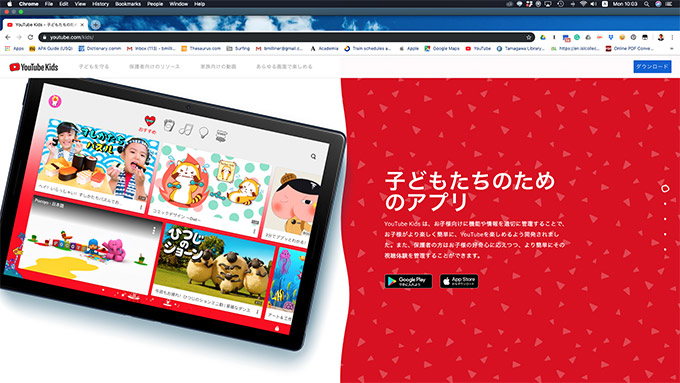言語選択
News
ELF Talk: English input (By Brett Milliner)
January 18, 2020 : Essays
I am Australian, my wife is Japanese, and we have two sons aged five and three. Our sons go to a Japanese kindergarten. The only time my sons speak English is when we talk in the evenings and on the weekends. Nevertheless, my sons can speak English and Japanese very well. They are bilingual. At kindergarten, many parents ask how they could help their children acquire English like our sons. Our advice is, “give your children a lot of interesting English input”. Watch the Disney Channel, stream popular English television shows on Amazon Prime or Netflix, play English radio while your children are playing in your house or driving in the car.
Although I believe children must not spend too much time using an iPad other mobile devices, children love them, and parents can program these devices so their children can only access English content. In our home, we have an iPad and our boys love to watch YouTube. We use the YouTube kids application [youtube.com.kids], and we have changed the settings, so our children watch English content. If we notice they are watching Japanese content, we block that YouTube channel. This may be a strict approach, but I believe watching YouTube has been most effective in helping our sons become bilingual.

For Japanese students who want to improve their English, I strongly encourage you to increase your English input. Follow English speakers on Instagram, listen to English podcasts, and subscribe to English channels on YouTube. It is also important that the content is interesting. For example, if you like dancing, you ought to look for content related to dancing. Nowadays, most Japanese own a smartphone and have access to the Internet, so it has never been easier to access English input.
Good look finding English input that interests you!
